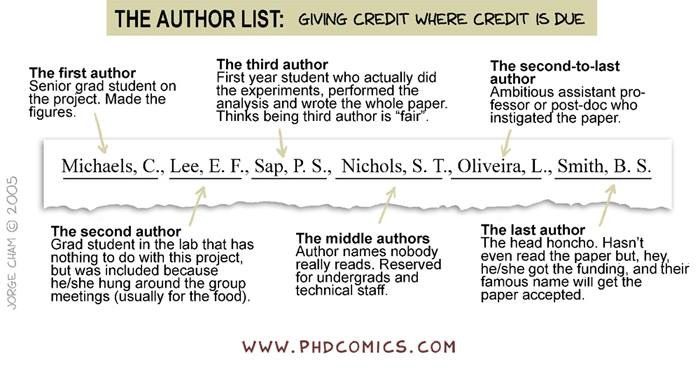#MedStudents, #Residents, #Fellows, and #Research Trainees - I recently had both a resident and fellow ask me how I got involved in research and published when I was a #trainee. I thought I would share my tips and advice in this thread. #MedTwitter #ACGME #MedStudentTwitter
1. Ask yourself👉what you want from this? To pursue research as career? To boost application for #residency #fellowship #employment? To get a recommendation letter? Regardless, aim for #publication (most value). Conference talks are cool, but publications stay on CV forever!
2. Basic science research=⬆️time+lab training vs clinical research. Study designs: RCTs, prospective, retrospective, case reports, review papers. Publishing case reports+review papers are most feasible endeavors during training! Best way to boost #publication numbers.
3. If time is limited👉choose case report/series/NARRATIVE review
If you have >6 months/light schedule👉consider SYSTEMATIC review or retrospective observational study
If you have aspirations to be a researcher and have time👉choose clinical studies (retro or prospective/RCT)
If you have >6 months/light schedule👉consider SYSTEMATIC review or retrospective observational study
If you have aspirations to be a researcher and have time👉choose clinical studies (retro or prospective/RCT)

4. Secure protected research time! Funded research opportunities that pay #medstudent for research during vacation between 1st/2nd year of #medschool (example👉 medschool.cuanschutz.edu/surgery/educat…).
In residency👉consider elective time for research (~2-3 months to write narrative review)
In residency👉consider elective time for research (~2-3 months to write narrative review)

5. Find a #MENTOR invested in your #education+accomplished in #research. Search CV+Scopus/Google scholar profile to gauge how prolific mentors are in research. Check if they have grant funding/ongoing projects. Ask upperclassmen which mentors are supportive of #trainee research.
6. Choose the #mentor that fits you. Some mentors are active in #research but don’t have time to #mentor, vs some are not experienced in #research but are committed to #mentoring #mentorship– strike a balance that fits you! Rare to find someone who is prolific+willing to mentor! 

7. #Networking can lead to #research opportunities. If you are a #medstudent in a small academic institution or #resident in private practice, reach out to prolific mentors/researchers from other academic institutions. Search their institutional website to query ongoing projects.
8. Make sure you are attributed the credit #authorship you deserve. If you put most of the work into a paper, you deserve to be first author. Search the list of #mentor #publications to see if they are last author and are giving credit to the #trainee as first author. 

9. #Team up with other #trainees! Many review papers require two people to perform steps in parallel. #Teamwork expedites publication. Beware–set expectations+assign roles, or else you may find yourself doing all the heavy lifting while someone else gets credit for doing nothing.
10. Find open/ongoing #research projects! You don’t have to be first author. Being a co-author on important research work may serve as a stepping stone for the #trainee to get some #experience, but not get too overwhelmed with conducting every step in the research process.
11. There are many peer-reviewed articles out there that can guide you on how to write your first paper:
Here are some examples👇👇
ncbi.nlm.nih.gov/pmc/articles/P…
pubmed.ncbi.nlm.nih.gov/32614286/
ncbi.nlm.nih.gov/pmc/articles/P…
ncbi.nlm.nih.gov/pmc/articles/P…
ncbi.nlm.nih.gov/pmc/articles/P…
ncbi.nlm.nih.gov/pmc/articles/P…
Here are some examples👇👇
ncbi.nlm.nih.gov/pmc/articles/P…
pubmed.ncbi.nlm.nih.gov/32614286/
ncbi.nlm.nih.gov/pmc/articles/P…
ncbi.nlm.nih.gov/pmc/articles/P…
ncbi.nlm.nih.gov/pmc/articles/P…
ncbi.nlm.nih.gov/pmc/articles/P…

12. Here are some specific resources to help write reviews
Narrative review: ncbi.nlm.nih.gov/pmc/articles/P…
Systematic review: pubmed.ncbi.nlm.nih.gov/31720912/
training.cochrane.org/handbook
I really like this guide to medical research manuscript writing by @NicholarZaorsky
bit.ly/ZaorskyManuscr…
Narrative review: ncbi.nlm.nih.gov/pmc/articles/P…
Systematic review: pubmed.ncbi.nlm.nih.gov/31720912/
training.cochrane.org/handbook
I really like this guide to medical research manuscript writing by @NicholarZaorsky
bit.ly/ZaorskyManuscr…

13. Disseminate and share the hard work you have accomplished! #Trainees are encouraged to attend national #conferences. Many conferences in the #healthcare field welcome abstract submissions from trainees and it is a great way to #network with other #trainees and #leaders.
14. Don’t quit! Many papers will get rejected by journals. Learn from #feedback + revise + resubmit to a different journal. U may consider inviting another expert to help improve content. I had a paper rejected by 8 different journals 😅before it was finally accepted.
15. If you are having trouble identifying a suitable #PeerReview #Journal for your work, consider this search engine (JANE–Journal/Author Name Estimator). You input keywords pertinent to your #research and it identifies potential journals where your research would be appropriate 

16. My utmost appreciation goes out to my mentors for getting me to this point in my #career
Dr. Anthony Donato @ReadingHosp, Dr. Johnson @rljohnsonmd, Dr. Moeschler @SMoeschlerMD, Dr. Tim Long @MayoAnesRes, Dr. Matthew Taylor @CUAnschutz 🙏🙏🙏
Dr. Anthony Donato @ReadingHosp, Dr. Johnson @rljohnsonmd, Dr. Moeschler @SMoeschlerMD, Dr. Tim Long @MayoAnesRes, Dr. Matthew Taylor @CUAnschutz 🙏🙏🙏
17. Shout out to some of my trainees
When I first met @LangfordBrendan two years ago about #research and #mentoring, he was very passionate about research but worried that he did not have any publication experience. He now has published 11 papers in two years! Many more to come!
When I first met @LangfordBrendan two years ago about #research and #mentoring, he was very passionate about research but worried that he did not have any publication experience. He now has published 11 papers in two years! Many more to come!

18. @JoshuaRomeroMD and @ChrisHaDO are exceptional #resident #physicians and very hardworking. They have made an impact with their work in #neuromodulation with several recent publications.👏👏
onlinelibrary.wiley.com/doi/abs/10.111…
@MayoPMRRes
onlinelibrary.wiley.com/doi/abs/10.111…
@MayoPMRRes

19. @SchappellMD is an exceptional PM&R #resident @MayoClinic. We are in revision phase for two articles in #pain journals including a clinical trial on #fibromyalgia and #neuromodulation outcomes, and an extensive review on pharmaceuticals. 👏👏👏Bright future ahead. @MayoPMRRes
20. @ross_barman is an exceptional anesthesia #resident @MayoAnesthesia He has published 15 papers, 5 of which were in 2021 during a busy year in #residency and amidst #fellowship applications. Over 500 citations already! 👏👏👏 

I hope this thread was useful! Please feel free to reach out if any questions!
@MayoAnesRes @NickCanzanello @r_wanderwoman @ross_barman @tayokakehinde @LangfordBrendan @ASRA_Society @AmerAcadPainMed @MumbaiPain @RajMoman @nasir418 @JoshuaRomeroMD
@MayoAnesRes @NickCanzanello @r_wanderwoman @ross_barman @tayokakehinde @LangfordBrendan @ASRA_Society @AmerAcadPainMed @MumbaiPain @RajMoman @nasir418 @JoshuaRomeroMD
• • •
Missing some Tweet in this thread? You can try to
force a refresh










